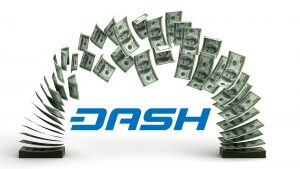Dash Spokesman Slams Bitcoin Paying Miners 100% Reward

Ryan Taylor, head of finance at Dash, claims the bitcoin blockchain’s practice of paying the entire blockchain reward to miners is faulty, in a piece on EconoTimes . He claims Dash, which allocates less than half its rewards to the miners, offers a more promising future.
Taylor said it makes no sense to devote all of the network’s resources to a single task out of many that are needed to sustain the network. The article was written by Brandon Kostinuk, the communications leader at Vanbex Group, a crypto marketing firm that serves Dash.
What Dash Does
Dash allocates only the amount it deems necessary for mining and transactional security.
It allocates 45% of its revenue to mining rewards, 45% to infrastructure and 10% to network, compared to bitcoin which gives 100% of its rewards to mining.
Taylor claimed Dash’s governance structure and budgetary system are industry leading. Dash’s July fiscal report is publicly available.
Bitcoin Faces Centralization Pressure
Taylor noted that bitcoin, meanwhile, faces centralization pressures. He noted that the Bitcoin Foundation, founded in 2012 to improve education, engage in advocacy and boost adoption and development, fell on difficult times last year.
Dash’s decentralized governance consists of Masternode owners, its second tier of incentivized nodes. The Masternode owners vote on Dash proposals.
The Dash community and its core team can propose changes to the network. The 10 percent of the budget allocated to the network’s needs must be voted on.
Taylor claimed that since the budget system began last August, Dash’s price has increased “significantly.” The higher price delivers a higher budget, which delivers more development, investment and partnership resources.
A review of the budget indicates the funds address a range of needs, including core team budget items and community-sponsored proposals.
Funds voted on include hardware wallet building, travel expenses, Google Apps for Work subscriptions and marketing.
Taylor said these items include everything Dash requires to operate as an organization. The incentivizing model ensures owners get a vested interest in supporting Dash’s sustainability and growth, be it through node hosting or voting.
Also read: Dash beverage machine shows instant confirmation of POS transactions
Data Centers Host Masternodes
Data centers professionally host most Masternodes since there is an incentive to keep the node running and receiving payments, Taylor said.
Dash’s first block launched in January of 2014. The blockchain is 1.14 GB. Bitcoin, by comparison, has a blockchain of about 88.5 GB. Ethereum’s is 18.7 GB and Litecoin’s is 6.59 GB.
Dash’s market capitalization at this report was $46 million, making it the seventh largest cryptocurrency.
Featured image from Shutterstock.
